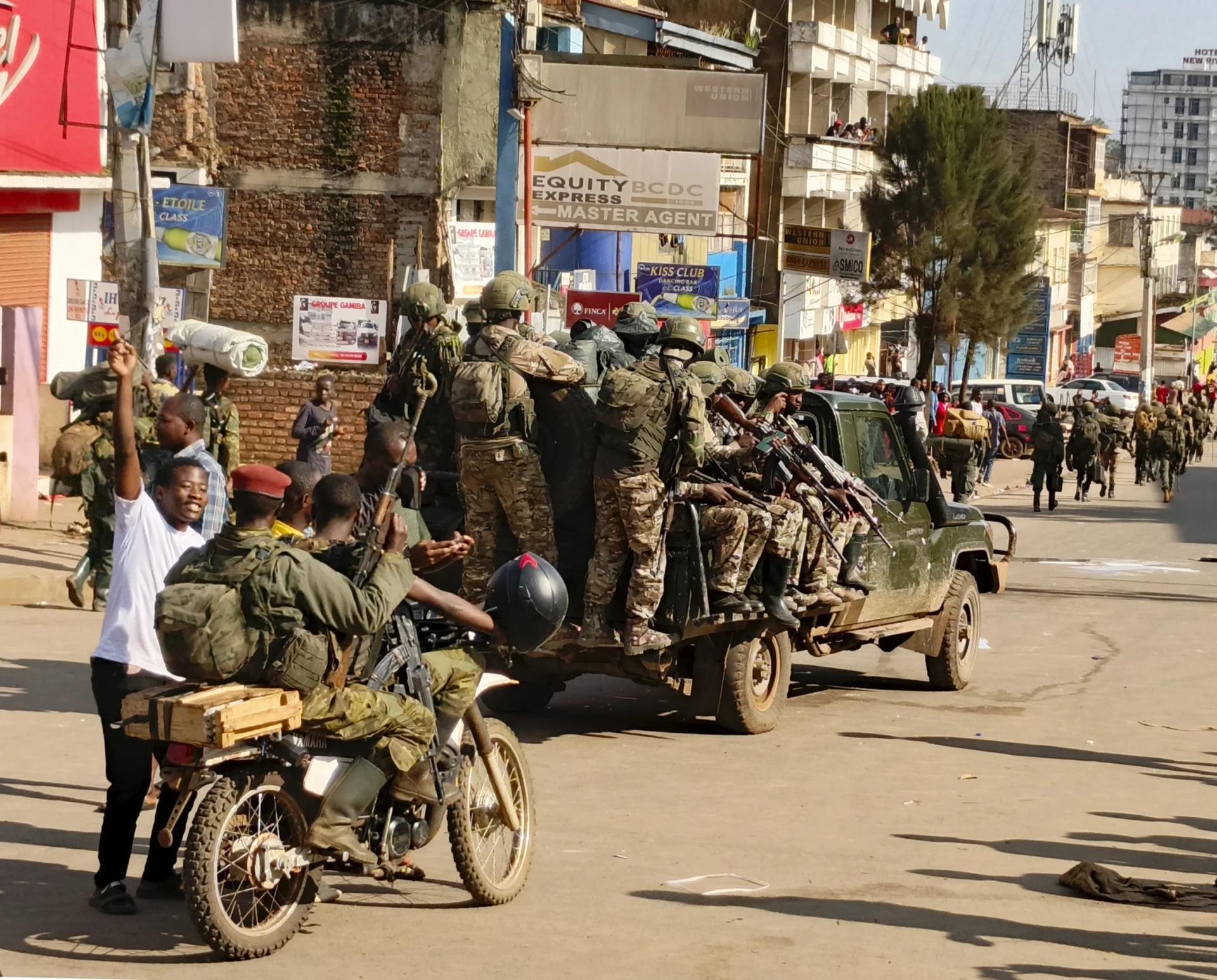YAOUNDÉ, Cameroon – As conflict continues to escalate in the Democratic Republic of Congo (DRC), the Catholic Church in Angola has signaled its readiness to welcome refugees fleeing the Central African country.
Sister Carla Luísa Frei Bamberg, Executive Secretary of the Episcopal Commission for the Pastoral Care of Migrants and Itinerants (CEPAMI) in Angola, said the Church, through its Pastoral Care for Migrants, is on alert in border dioceses, particularly Uíge and Mbanza Congo, to welcome refugees.
Fighting between Congolese security forces and militant groups, notably the M23 rebels backed by Rwanda, are driven by the search for territorial control and competition for critical minerals so abundant in eastern Congo. And it is rooted in historical ethnic tensions.
Reports indicate that columns of M23 fighters entered the center of Bukavu on February 16. According to RFI, they were received by the population as “liberators.” Most of the Congolese armed forces abandoned Bukavu on Friday, leaving behind weapons that were recovered by civilians and bandits.
The rebels entered Bukavu three weeks after conquering Goma – the capital of North Kivu.
The fighting in Goma – in North Kivu – displaced over 400,000 people in three weeks, adding to the over four million already displaced, according to the UN. An estimated 135,000 people have been displaced from the town of Sake alone, contributing to the region’s high number of Internally Displaced Persons (IDPs), estimated to be around 800,000.
Melchisedeck Batumike, fleeing the conflict, told TV5 Monde that the situation in Goma was “catastrophic.”
“I am very worried about the situation. I have tried to contact people by phone, but no one is picking up,” he said.
Dezonga Mapenzi, who fled Goma and is now receiving treatment at a hospital in South Kivu, told VOA that he was shot in the neck and the bullet “is still inside there.”
M23 released a statement urging the population not to succumb to fear. However, Johan Viljoen, Director of the Denis Hurley Peace Institute of the South Africa Bishops Conference, told Crux that the population has little trust in both the insurgents and the government forces.
“The local population faces threats from both insurgents and the State Armed Forces and does not necessarily view either as liberators. The people of Goma are battle-weary — they have witnessed numerous armed formations come and go. To them, this is just more of the same,” he said.
Welcoming Refugees
With the sound of gunshots and the need to flee, thousands are crossing borders into Rwanda and Angola. The Catholic Church in Angola is laying the groundwork for receiving Congolese refugees.
In an interview with ACI Africa on February 12, Bamberg emphasized the Church’s preparedness.
“We are prepared at the borders, especially in the dioceses bordering Congo, to ensure that any arrivals are met with care and support,” the religious sister said.
“Our animators in the Pastoral Care for Migrants are ready to receive these individuals not as intruders but as brothers seeking relief from dire situations,” she said.
The religious sister urged the people of Angola to show empathy and hospitality towards refugees, recognizing them as human beings.
“We must know how to welcome these people who come to us facing great difficulties,” she added.
Bamberg acknowledged the challenges involved in welcoming refugees, given the limited infrastructure.
“As a Church, we are moved and saddened by the reality of the conflict in the DRC. The migration issue also concerns us: how are these people moving? So far, we have no statistical data on the arrival of refugees at our borders, but since the conflict is happening in Eastern Congo, it may take some time for these people to reach Angola,” she said. “We are on standby, along with other organizations, to receive them, as this is our mission.”
She urged the Angolan state to ensure that refugees, when they arrive in Angola, are provided with the basics for a life with dignity, such as access to food, water, and shelter.
Angola and the DRC share a long border—approximately 1,500 miles. Controlling the influx of refugees and migrants is increasingly challenging.
“We do not have rigid border control, making it easy and vulnerable for crossings, which could also lead to human rights violations. This is important, concerning, and challenging for us in the Pastoral Care of Migrants,” Bamberg said.
The religious sister mentioned that the wars in Ukraine and the Middle East have drained much of the international humanitarian assistance, making funding for Congo war victims difficult.
Despite these challenges, the Church is prepared to take on the responsibility. Bamberg, a Brazilian-born nun, said that pastoral agents in various dioceses are being trained to welcome refugees and refer them to the competent authorities.














